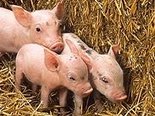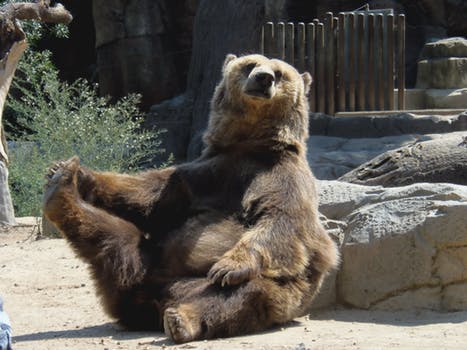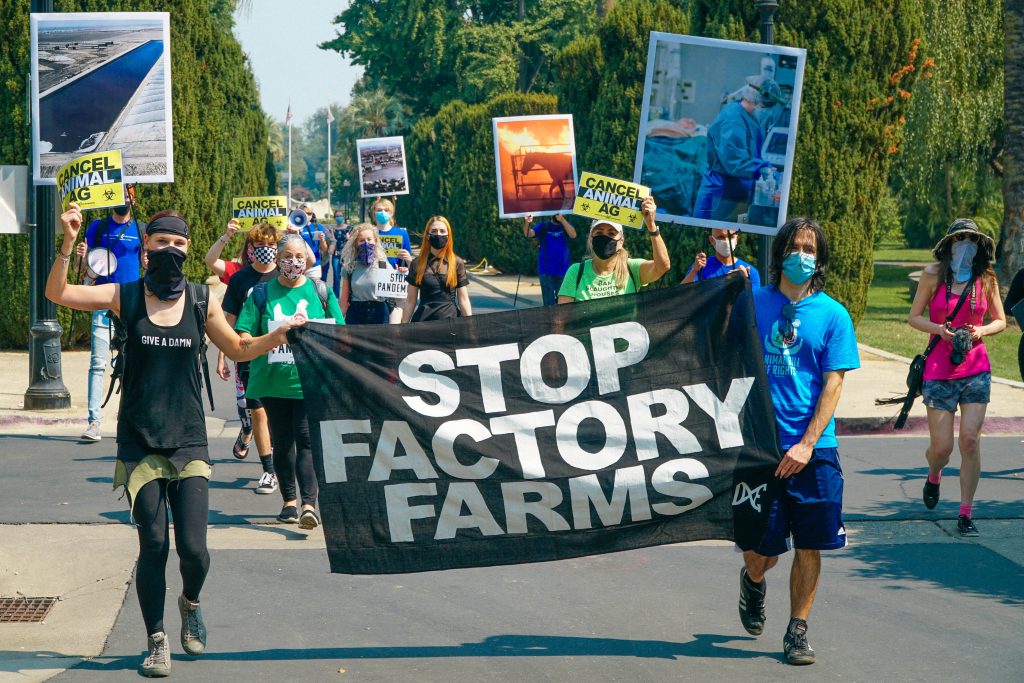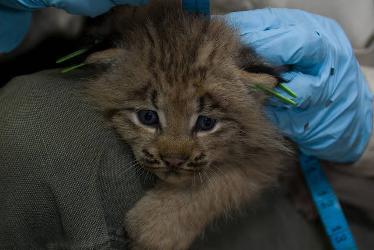We’ve been doing these lists since 2015 and it’s become something of an annual tradition. But it’s also important for animal advocates because this assessment brings perspective to our work. We often celebrate a victory for the animals to discover we are facing the same battle again. On the other hand, we find that some issues that seem intractable do get resolved to the animals’ benefit if we persevere and are patient and strategic.






- The U.S. Supreme Court is considering a challenge to California’s Proposition 12 which banned the most extreme confinement practices by industrial agriculture. The court heard oral arguments in National Pork Producers Council v. Ross in October based on an argument that Prop. 12’s regulation of pork products produced in other states but sold in California, violates the U.S. Constitution. The court’s decision, due by June 2023, could handicap states’ ability to regulate animal welfare. This article is a good review of the case.
- Wolves remain in the news as they have for many years. A complicated issue, here is what happened in 2022:
- Western Great Lake Gray Wolves who live in Michigan, Wisconsin, and Minnesota (a small fraction of their historic range) end the year protected under the Endangered Species Act. The wolves had been de-listed in early 2021 and remained under state management until February when a federal judge agreed that the process of removing them from the ESA was flawed. That decision is being appealed, with the Administration filing a brief in support of de-listing.
- Michigan updated its Wolf Management Plan this year, with most wolf advocates agreeing that the Plan considered updated science and did not recommend a hunting and trapping season.
- On the other hand, wolves in the Northern Rockies (Idaho, Montana, Wyoming) were de-listed about 10 years ago and returned to state management. In the past few years, these states have aggressively pursued policies to make it easier to hunt and trap wolves. In March several advocacy groups filed a petition with the U.S. Fish & Wildlife Service for emergency protections for these wolves, with a decision expected early in 2023.
- The issue has become highly politicized and part of the “culture wars” that the U.S. is experiencing.
- This article provides a good summary.
- #4000 Beagles captured the interest (and hearts) of many people this year. This was a major operation that involved a federal agency, the U.S. Department of Justice, Virginia officials and legislators The Humane Society of the United States and scores of animal shelters around the country. A Virginia facility that bred beagles for sale to research had numerous violations of the Animal Welfare Act that encompassed years. This summer, Envigo (driven by a DOJ lawsuit) agreed to surrender the beagles at the facility. The DOJ entered into an agreement with HSUS, which proceeded to launch an all-out effort to get the dogs to shelters around the country and into permanent, loving homes. Meanwhile, Virginia passed stringent laws regulating the industry. We think this story would make a great movie! HSUS recaps the story here.
- Wildlife trafficking is a worldwide issue.
- Covid 19 may have been a needed wakeup call to the devastation that results from the illegal wildlife trade. This year saw more attention and action to combat this problem. In November, representatives from countries and NGOs around the world met in Panama for CoP-19, the triennial meeting of governmental and NGOs representatives to the Convention on International Trade in Endangered Species of Wild Fauna and Flora (CITES). The meetings resulted in increased protection for hundreds of species threatened by human demand for pets, meat and trophies. A recap of CoP-19 is here.
- In the U.S., a year-end flurry of legislation saw passage of the END Wildlife Trafficking Act which strengthens existing federal law and mandates a whole-of-government approach to the problem. Also passed into law was the Shark Fin Elimination Act, which ends commerce in shark fins. Shark finning is a brutal practice for the purpose of indulging people’s taste for soup.
- In Uganda this year, Africa’s only court devoted to wildlife issues saw the judge hand down a life sentence to a repeat offender in the elephant ivory trade.
- Captive Animals — progress to report
- Remember the Tiger King reality show from early 2020? The fall-out from exposing the cub-petting and roadside zoo industry to scrutiny has been wide-reaching. The Big Cat Public Safety Act was signed into law in December, prohibiting private ownership and cub-petting. Many of the “stars” are in prison, facing criminal charges, or had their establishments shuttered. More information and an analysis of the impact of the show can be found here.
- Tokitae (Lolita) has the best chance of being released to sanctuary after 50+ years of being on display at the Miami Seaquarium and living in a small concrete tank. She was captured from her native waters in Puget Sound in 1970. With new ownership of the Seaquarium, and her health improving, advocates are hopeful that 2023 will bring her release. Read her story here.
- APHIS, the Animal and Plant Health Inspection Service of the USDA has taken a more active role in regulating facilities that display animals. While substantial concerns remain about the agency’s ability to enforce the Animal Welfare Act.
- Despite progress, animal advocates must remain alert; for example, in June, a family festival featured the “Banana Derby” in which capuchin monkeys are chained to the back of dogs who run around a racetrack. We are hopeful that on-site protests, negative publicity, and increased awareness will bring an end to this “entertainment.” Read AFA’s comment.
- A recap of victories
- Farmed Animals – the most egregious practices gain attention, despite the risk of an adverse Supreme Court ruling in the Proposition 12 case. For example:
- Ag-Gag laws continue to find disfavor in the court (and the U.S. Supreme Court declined to review a case that held the Kansas law – the oldest in the country – violated the 1st Amendment)
- Ventilation Shut Down, a cruel practice of killing farmed animals by suffocation, has come to public attention during COVID and during the avian flu epidemic this year. Despite veterinarians demanding that the AVMA label the practice as “not recommended,” and a bill introduced in Congress, the “Transparency in Depopulation Act” would prevent federal funds from being used for the practice. However, as this article details, industrial agriculture is pushing back so that the practice can continue.
- The following bills were introduced in Congress and although they did not pass, are a recognition of the harm done by industrial agriculture:
- Industrial Agriculture Accountability Act (S. 5178) would require agribusiness to develop and pay for contingency disaster plans and to ban inhumane practices in culling, transport and slaughter;
- H.R. 9309 would expand the Animal Welfare Act to provide greater protection for roosters used in animal fighting
- Introduced in both the House (H.R. 1815) and Senate (S. 713), Safe Line Speeds During COVID-19 Act would suspend USDA waivers allowing increased line speeds at slaughterhouses during pandemic
- Farm System Reform Act would put a moratorium on CAFOs and was introduced in the House (H.R. 4421) and Senate (S. 2332)
- Italy passed legislation that would ban the killing of male chicks, seen as a byproduct in the egg industry; the law becomes effective in 2026
- Aquaculture, or fishing farming is becoming a public policy issue, with some legislators and agencies pushing to subsidize the industry, while environmentalists and animal welfare advocates raise alarms. Recently Washington state refused to renew a fish farm lease, and the corporation is suing. Read more here. An in-depth report is here.
- A southern Utah jury found two Direct Action Everywhere leaders not guilty on all charges for rescuing two sick piglets from Smithfield’s Circle Four CAFO. Details here.
- Regulatory agencies again in the news—a mixed bag. The significance of regulatory agencies on animal welfare has been of particular interest to Attorneys for Animals this year. We devoted resources to enhancing our supporters’ understanding of, and participation in, the regulatory process. We invited Prof. Delcianna Winders to Lunch + Legislation in April. Her discussion is an important contribution to understanding that regulatory agencies play an outsized, but little known or understood role in the lives of animals.
- The good:
- USDA proposed standards to improve the welfare of birds not bred for research, a long-awaited development and one we will continue to follow as the agency finalizes the rule; the significance of covering birds under the Animal Welfare Act cannot be overstated
- Proposed standards for animals raised for food under the federal organic program are likewise significant because they represent the first federal welfare regulations applicable to farmed animals; additional information.
- USFWS rescinded a rule from the previous Administration that made it easier to shrink critical habitat designations for endangered or threatened species.
- USDA rescinded the “teachable moments” doctrine that prioritized education of AWA violators and de-emphasized sanctions, which downplayed animal welfare.
- USFWS proposed phasing out lead ammunition on federal wildlife refuges (where hunting is permitted)
- The not-so-good:
- Lawsuit against USDA by Harvard Law School’s Animal Law & Policy Clinic, challenging a secret policy by the agency to avoid the AWA mandate that it inspect research facilities on an annual basis
- The USDA is being investigated for lack of oversight in Elon Musk’s Neuralink company, accused of multiple AWA violations
- USFWS supports de-listing of wolves; USDA supports challenges to Proposition 12 (see #1 above)
- Lawsuit against USDA for its inadequate response to HPAI was settled
- USDA penalties for animal welfare violations: “Toothless and ‘paltry’”
- War in Ukraine: we have seen indelible images of the plight of animals caught up in the war, as well as heart-warming stories of rescues, here.
- Disease: COVID in mink; Chronic Wasting Disease (CWD) in farmed and wild deer, moose, elk; HPAI (avian influenza); federal dollars to track COVID in wild and domestic animals
- Animal Law Developments in courts and schools
- Happy the elephant’s suit seeking habeas corpus relief was dismissed by New York’s highest court. Read an analysis.
- Washington State’s Supreme Court held that animal abuse can be domestic violence.
- Animal Law Conference celebrated its 30th anniversary in November (and a return to in-person in Portland, OR)
